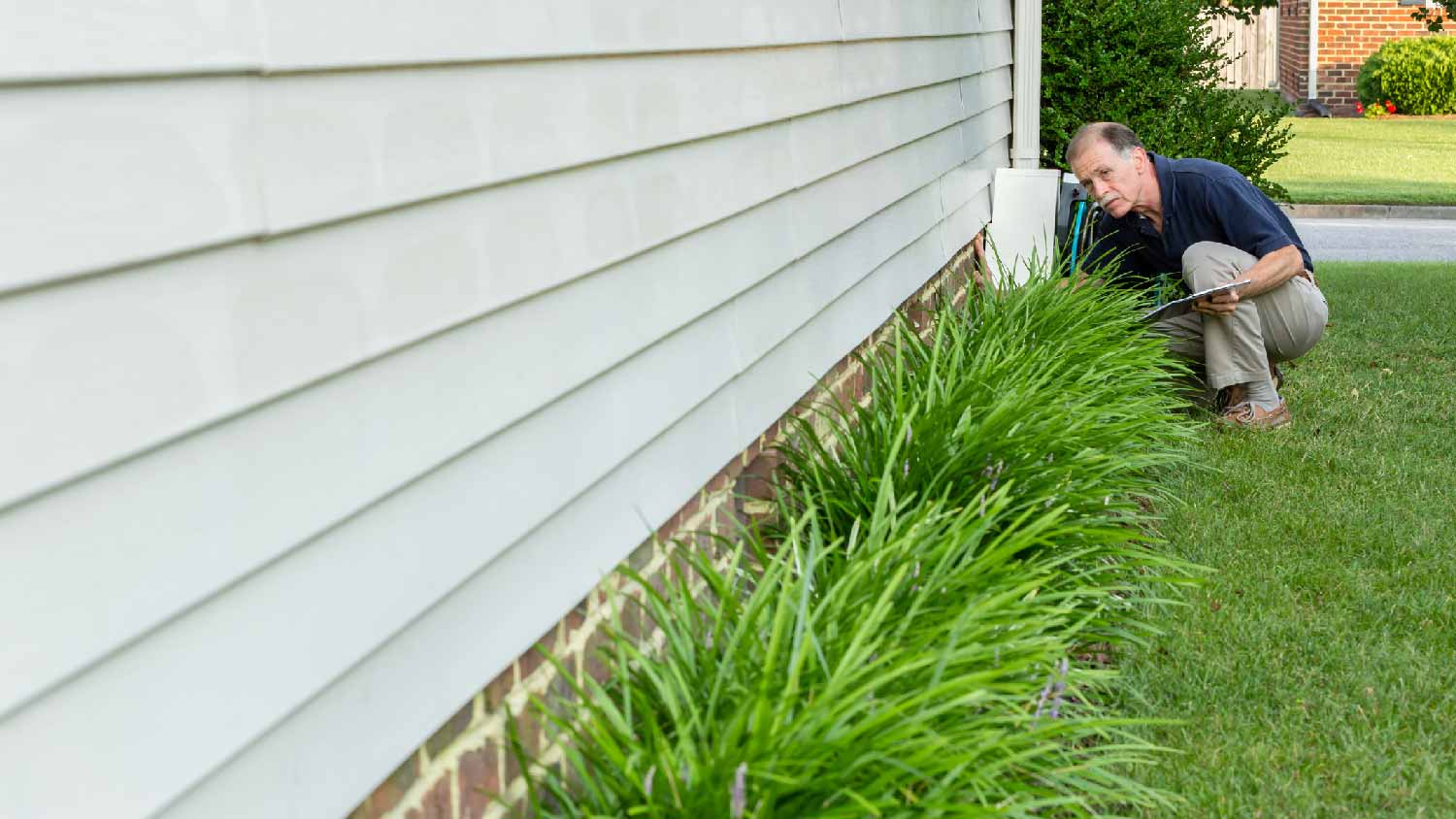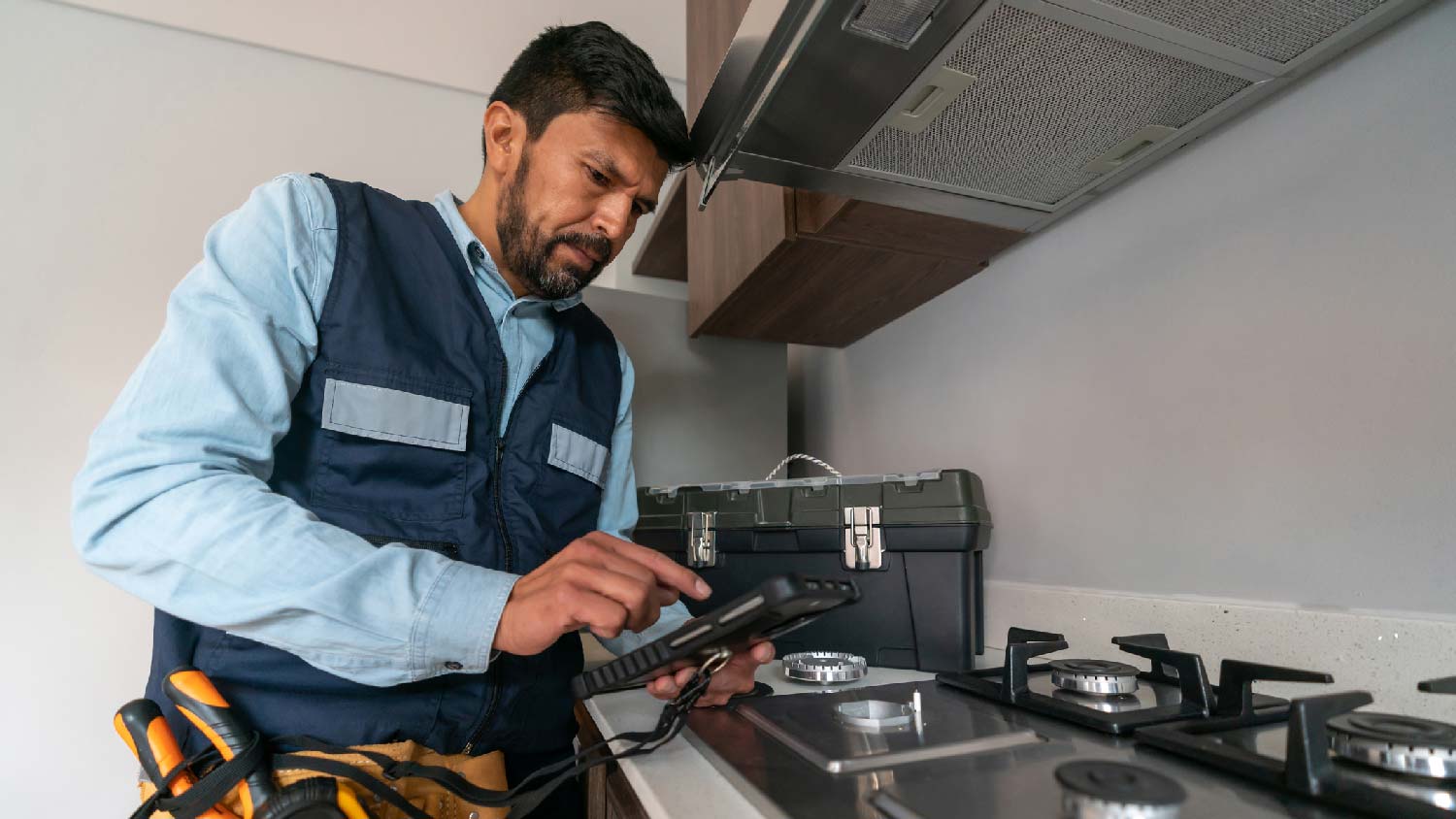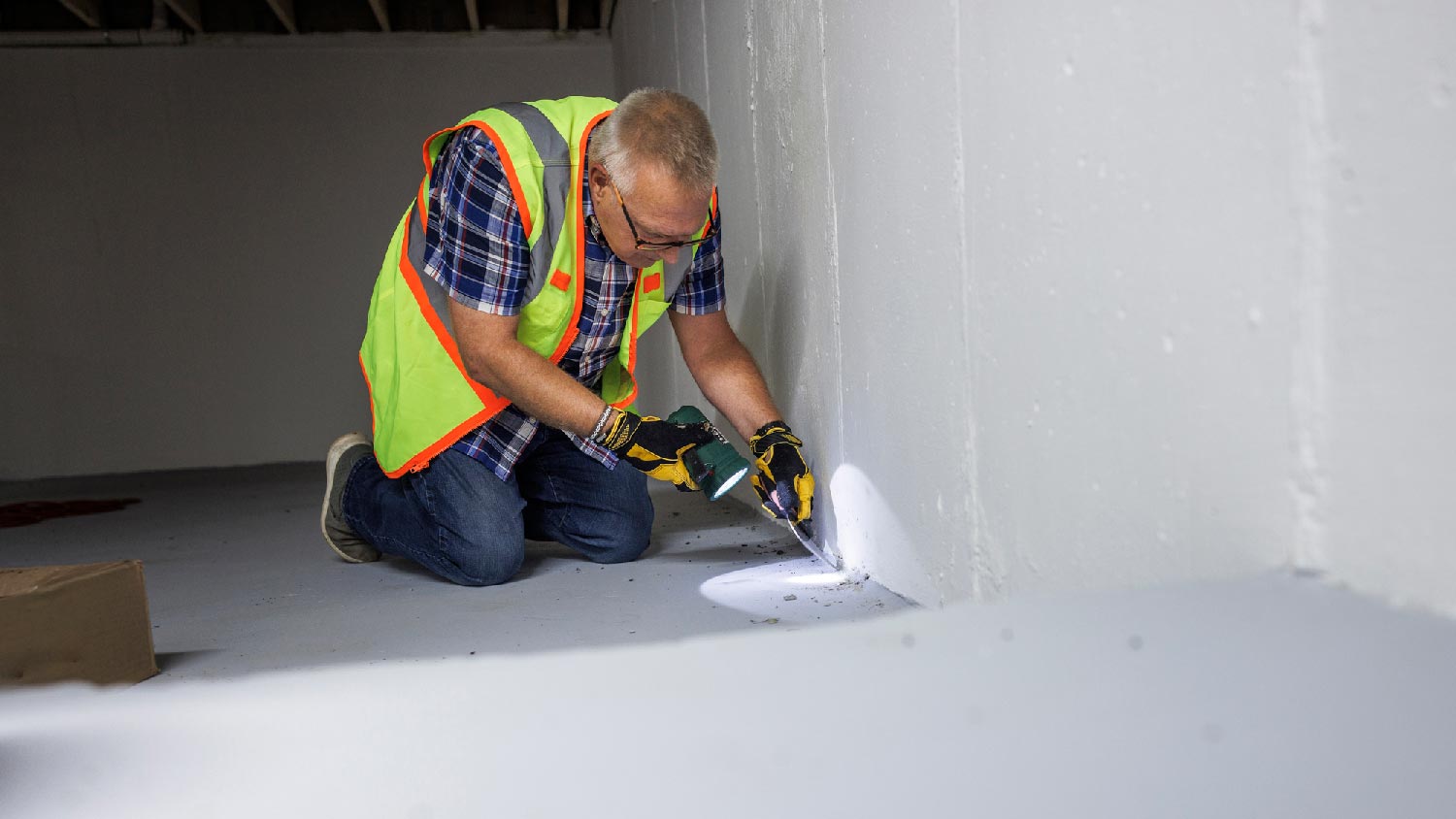
If you’re buying a home, having an inspection offers reassurance that it’s in good condition. How much a home inspection costs varies depending on the home's size, age, condition, and location.
Know what you’re up against after your inspection


Home inspections can save buyers up to $14,000 in repairs.
The most costly repairs uncovered in an inspection are related to the roof, foundation, HVAC, and water damage.
After an inspection, a potential buyer can send a repair request, counter-offer, or walk away.
Mortgage lenders require some repairs discovered in an inspection to be completed before the sale closes.
While a flaw-free home inspection is every buyer's dream, it’s often not the case. Nearly all home inspections uncover some kind of issue within a property. Stay ahead of the game by preparing yourself for the most common home inspection issues, so you know what your options are when the inspection is over.
The cost for a home inspection typically ranges from $280 to $400. While you may not want to shell out this initial cost, it can lead to big savings in the future. On average, a home inspection saves buyers $14,000 in repairs.
While home inspections are thorough and allow professional inspectors near you to take a closer look at your whole house, they don’t dive deeply into everything. Some areas that aren’t included are:
Pest infestations
Septic systems
Toxic mold, asbestos, and lead-based paint
Air quality
If you suspect that any of these may be potential issues and need to be looked at further, consider hiring a trusted contractor that specializes in these other types of home inspections.

Don’t be surprised if some issues arise during your home inspection. Almost every home inspection will find some repairs or damage within a property, but many of these issues are easy to repair and won’t cost you an arm and a leg.
However, there are some major issues to look out for including roofing, foundation, and HVAC problems as well as water damage. These red flags may cost a bit more money to fix and could affect your loan if you’re in the process of buying a house.
If you’re preparing to make an offer on a house, you have the option to add a home inspection contingency to the contract. If your offer is accepted, this contingency allows you the freedom to negotiate or walk away if major issues show up during a home inspection.
Foundation repairs can be one of the most costly issues that can arise during your home inspection. Foundation issues are often caused by water. When the soil around your foundation is too wet or too dry, it can cause swelling or shrinkage.
Your home inspector will look for:
Crumbling
Cracks
Unevenness
Leaks
Bowing
These factors will help determine if the foundation is sound. It’s important for foundation repairs to be addressed as soon as possible as they can lead to more severe and costly repairs in other parts of the home.
A cracked foundation can lead to other problems including roofing issues, leaks, and doors and windows that won’t close. Depending on the issue, foundation repairs can cost anywhere from $300 to $30,000.
Roofing issues are another common problem found during home inspections. Many inspections will unveil some sort of damage to the roof of a home. The most common issues discovered are:
Leaks
Loose or missing shingles
Sagging
Vent blockage
Poor insulation
Many of these issues are caused by weather or age, so it’s important to take note of the area and the original build date of the home you’re looking to purchase.
The average cost of roof repairs ranges from $380 to $1,800, with replacements costing up to $13,000.

Electrical problems cause roughly 50,000 house fires yearly. While many new homes have an adequate supply of power and outlets, older homes may not have enough power supply. This causes electrical problems to be one of the most common inspection issues with an older home.
Electrical issues are often caused by:
Faulty appliances
Poor wiring
Surges
Common issues that are found during inspections are:
Frayed insulation
DIY wiring
Over-fusing
Mismatched wiring
The inspector will assess the electrical panel to check for any signs of safety issues or fire hazards. If the electrical panel needs to be replaced, it can cost between $520 and $2,100.
Another one of the most common issues found in home inspections is with the HVAC system. It keeps the home at the correct temperature and controls humidity. Most systems have a life of 10 to 20 years before they need to be replaced.
If you’re purchasing a home with an old system, consider having an HVAC inspection conducted for a more thorough check. The most common issues found with HVAC systems are:
Old ductwork
Inefficient airflow
Improper wiring

It’s common for many home inspections to discover plumbing issues. Home inspectors will spend a good portion of their time inspecting the plumbing systems due to their complexity. They will look at the:
Faucets
Showers
Visible pipes
Main weather shutoff valve
They may discover minor issues such as a leaky faucet or clogged drain. However, you might also run into major problems, which can be costly, including:
DIY plumbing
connection issues
Old pipes
If you suspect any major issues with the plumbing systems, it’s recommended to find a plumber near you to conduct a more thorough inspection. Any issues left unrepaired can lead to bigger problems such as mold spreading throughout the home.
Another red flag found in many home inspections is drainage issues. These issues are often the result of improper grading, which is the slope that’s present in the area around your foundation.
Proper sloping allows water to flow away from the house, but improper sloping can result in it pooling around your foundation. If this occurs, the structure of the home could be affected and can result in a:
Flooded basement
Damp crawl space
Cracked foundation
Collapse of your house
The average cost to correct drainage problems ranges from $2,000 to $6,000.

Mold is an important issue to look out for as it can have a severe impact on your health. It’s most often tied to plumbing or ventilation issues and can be found in attics, basements, or between walls.
Mold is most often caused by:
Persistent humidity
Leaking pipes
Poor ventilation
Flooding
Leaking air conditioner systems
The discovery of mold will also help uncover the underlying cause of the moisture and water damage in the home.
It’s important to clean up mold in your home because living in a house with mold can result in:
Respiratory issues
Headaches
Skin irritation
Mold remediation costs range anywhere from $1,100 to $3,400 depending on the location, square footage, and severity of the issue.
After a home inspection, you’ll receive a home inspection report outlining the condition of the home. Your inspector will go over the report with you to help you understand the issues they found and their severity. Understanding this report and its findings will help you make an informed decision on how to proceed.
If you’re buying a home, you have options on how you can continue with the sale. You can choose to:
Send a repair request to the seller
Present a counteroffer
Walk away from the sale entirely
If you send a repair request to the seller they can choose to complete the repairs, offer a credit for the repairs, or deny your request.
A counter-offer may be the best option if you’d like to complete the repairs yourself, and want to lower the sale price to account for the cost of repairs.
But, if the home has turned up with severe issues, such as those within the foundation or roof, you may choose to walk away entirely. While this may be disappointing, you can save yourself the costly and long process of major repairs.
If you choose to proceed with the sale, make sure you’re aware of any repairs that are mandatory for your loan and lender. Mortgage lenders will refuse to finance a property if there are any significant issues or safety concerns. Some repairs that may be mandatory before the sale closes include:
Water damage
Health concerns including mold or asbestos
Roof issues
Faulty wiring
Plumbing problems
Your mortgage lender will conduct a home appraisal after your home inspection is complete. The appraisal is a separate inspection of your home that assesses the condition and value of the property. Significant issues will come to light in the appraisal, so it’s important to inform your lender of the home inspection results.
From average costs to expert advice, get all the answers you need to get your job done.

If you’re buying a home, having an inspection offers reassurance that it’s in good condition. How much a home inspection costs varies depending on the home's size, age, condition, and location.

An attic inspection can confirm structural components, insulation, and home systems are all in order. Learn about attic inspection costs and what to know.

Drone roof inspection costs vary depending on the roof’s size, complexity, and material. Use this guide to budget for a drone roof inspection.

Even a well-maintained home can have hazards for older adults. Learn how home inspections can help you reduce risks and stay safely in your home.

In this guide, learn about the many things you need to cross off your rental property inspection checklist to comply with local regulations.

A home inspection can help homeowners find issues and understand their home’s condition. Use this guide to learn what a home inspection covers.